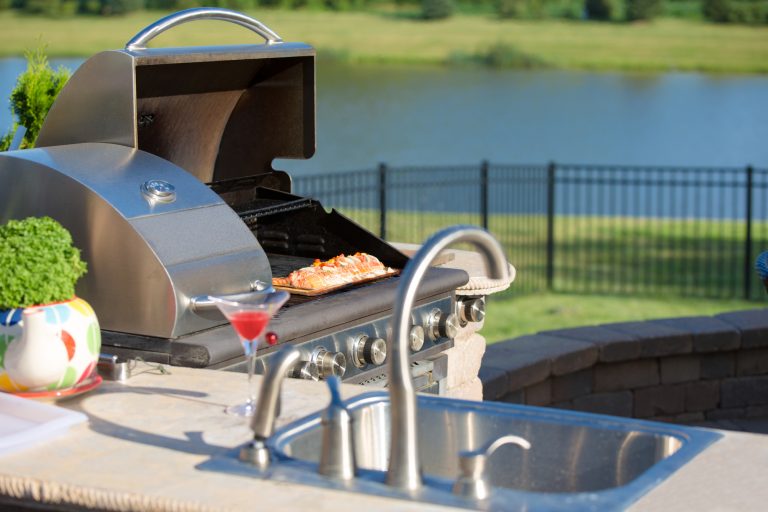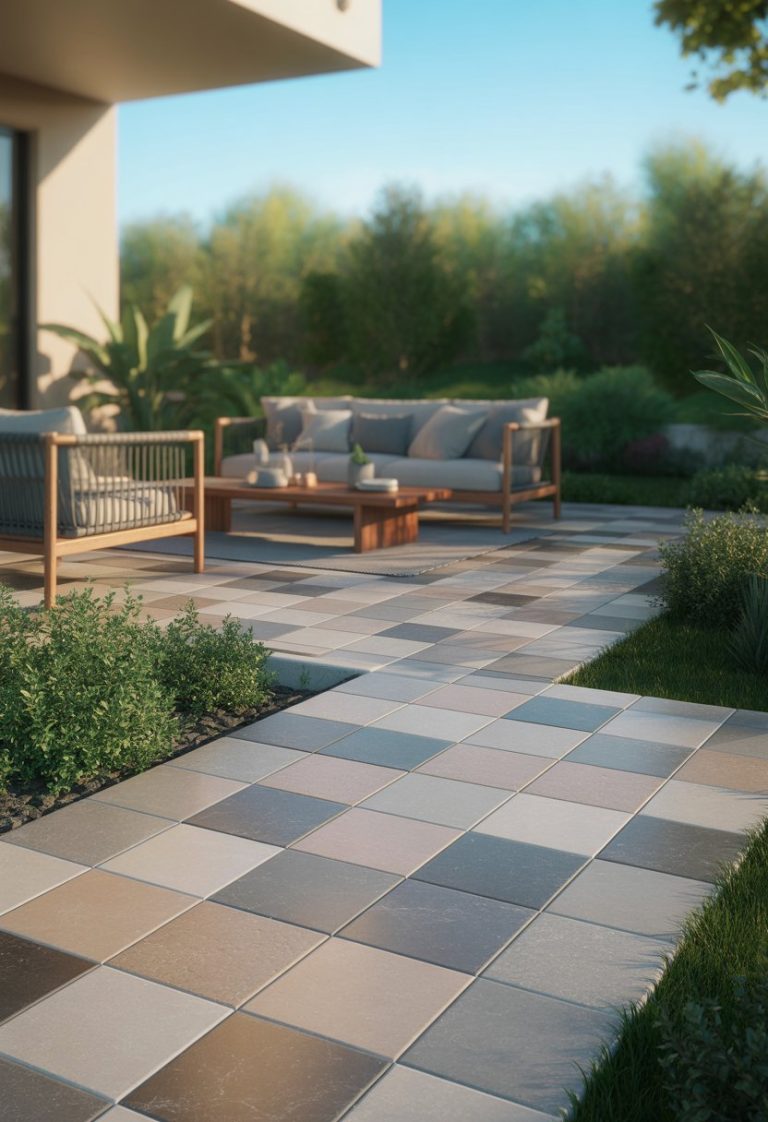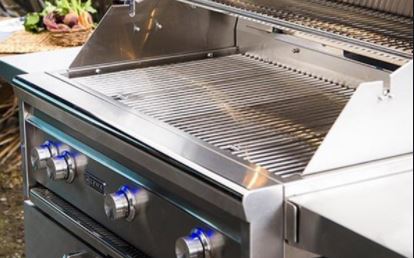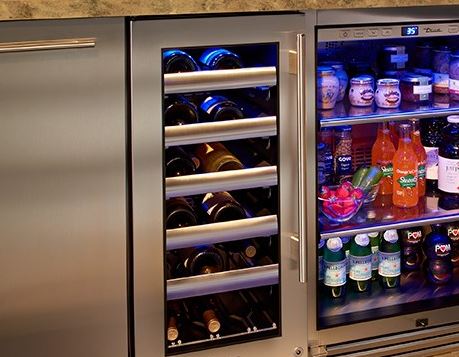Do I Need a Permit to Build an Outdoor Kitchen?
Do I Need a Permit to Build an Outdoor Kitchen? Your Guide to Local Regulations
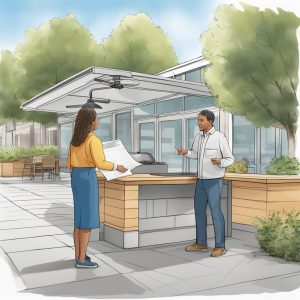
If you’re looking to build an outdoor kitchen, you may be wondering whether you need a building permit. The answer is not always straightforward, as it depends on a variety of factors, including your location, the size of your project, and what you plan to include in your outdoor kitchen. In this article, we’ll explore the ins and outs of building outdoor kitchens and help you understand when a building permit is required.
Understanding Permit Requirements
Before you start your outdoor kitchen project, it’s important to familiarize yourself with the building codes and zoning laws for outdoor kitchens in your area. In general, outdoor kitchens that include gas grills, combustible materials, and plumbing work will require a building permit. However, some small electrical and plumbing projects may not require a permit, but it depends on your location. If you’re unsure whether you need a permit, it’s always best to consult with your local building department to avoid any potential issues down the line.
Designing Your Outdoor Kitchen
When designing your outdoor kitchen, keep in mind that your plans may need to be adjusted to comply with building codes and zoning laws. For example, your outdoor kitchen may need to be a certain distance from your property line or have a certain amount of clearance around it. Additionally, you’ll need to ensure that your outdoor kitchen is constructed with weather-resistant materials and that all gas lines and electrical connections are installed safely and up to code. With careful planning and attention to detail, you can build a beautiful and functional outdoor living space that meets all of your needs.
Key Takeaways
- Building an outdoor kitchen may require a building permit, depending on your location and the specifics of your project.
- Familiarize yourself with building codes and zoning laws for outdoor kitchens in your area before you begin your project.
- Design your outdoor kitchen with safety and compliance in mind, using weather-resistant materials and ensuring that all gas lines and electrical connections are installed safely and up to code.
Understanding Permit Requirements
When building an outdoor kitchen, it is important to understand the local building codes and the building permit process. This will help you avoid any legal issues and ensure your outdoor living space is safe and up to code.
Local Building Codes
Before you begin your outdoor kitchen project, it is important to research the local building codes and zoning laws for outdoor kitchens in your area. This will help you understand what is required of you in terms of permits and approvals.
Building codes are put in place to ensure the safety of your outdoor living space. They cover a range of topics including the use of combustible materials, placement of gas grills, and plumbing work. Failure to comply with building codes can result in fines and legal action.
Building Permit Process
To begin your outdoor kitchen project, you will need to obtain a building permit from your local government officials. This permit will grant you permission to begin construction and ensure that your outdoor living space is up to code.
The building permit process typically involves submitting an application, paying a fee, and having your plans reviewed by a building inspector. Depending on the complexity of your project, you may also need to obtain electrical and plumbing permits.
It is important to note that the building permit process can take several weeks to complete, so it is important to plan accordingly. Once you have obtained your building permit, you can begin construction on your outdoor kitchen.
In conclusion, building an outdoor kitchen requires obtaining a building permit from your local government officials. This process involves researching local building codes and zoning laws for outdoor kitchens, submitting an application, paying a fee, and having your plans reviewed by a building inspector. By following these steps, you can ensure that your outdoor living space is safe and up to code.
Designing Your Outdoor Kitchen
When building an outdoor kitchen, there are several factors to consider before starting your outdoor kitchen project. In this section, we will discuss the key aspects of designing an outdoor kitchen that will help you create a functional and beautiful space that meets your needs.
Choosing the Right Location
Selecting the right location for your outdoor kitchen is crucial. Consider the size of your backyard, the amount of sunlight, and the proximity to your indoor kitchen. You should also think about the view, as well as any potential obstacles such as trees or structures.
Selecting Materials and Appliances
When choosing materials for your outdoor kitchen, consider the durability and weather resistance of the materials. Stainless steel, stone, and granite are popular choices for countertops, while wood and custom cabinetry are great for a more natural look. For appliances, a gas grill, refrigerator, sink, and ample counter space are essential.
Outdoor Kitchen Style and Layout
The style and layout of your outdoor kitchen should complement your backyard and outdoor living space. Consider the square footage of your outdoor kitchen, as well as the cooking area and counter space. You should also think about the foundation and cladding of your outdoor kitchen, as well as the material selection for cabinets and countertops.
It is important to keep in mind that building codes and zoning laws for outdoor kitchens vary by location. You may need to obtain a building permit and electrical and plumbing permits before starting any plumbing work or gas lines. Additionally, you should be aware of any combustible materials and follow proper safety precautions.
By taking these factors into consideration, you can design an outdoor kitchen that meets your needs while complying with building codes and zoning laws.
Utility Connections and Safety
When building an outdoor kitchen, it is important to consider the utility connections and safety measures. This section will discuss the electrical and plumbing considerations, as well as the gas lines and combustible materials.
Electrical and Plumbing Considerations
If your outdoor kitchen project involves the installation of a sink, refrigerator, or other appliances, you will likely need to hire a professional to install plumbing and electrical outlets. In most cases, major electrical and plumbing work will require a permit. However, some small electrical and plumbing projects may not require a permit, but it depends on your location. It is best to check with your local building codes and zoning laws for outdoor kitchens to determine what permits are required.
When installing electrical outlets, it is important to use GFCI (ground fault circuit interrupter) outlets to prevent electrical shock. GFCI outlets are designed to trip when they detect a ground fault or electrical leakage. Additionally, all electrical work should be done by a licensed electrician to ensure safety.
Gas Lines and Combustible Materials
If you plan to use a gas grill or side burner in your outdoor kitchen, you will need to install gas lines. Gas lines must be installed by a licensed professional and must adhere to building codes and safety standards. It is important to use the correct size gas line for your appliances to ensure proper gas flow and prevent leaks.
When building your outdoor kitchen, it is important to consider the use of combustible materials. Pressure-treated wood should not be used for any surfaces that will come into contact with food. Additionally, combustible materials should not be placed near gas lines or appliances to prevent fire hazards.
In summary, when building an outdoor kitchen, it is important to consider the utility connections and safety measures. Major electrical and plumbing work will likely require a building permit, and all electrical and plumbing work should be done by licensed professionals. Gas lines must also be installed by licensed professionals and must adhere to building codes and safety standards. Additionally, the use of combustible materials should be avoided to prevent fire hazards.
Budgeting and Cost Estimates
When it comes to building an outdoor kitchen, budgeting and cost estimates are crucial aspects to consider. In this section, we will discuss two important factors that will help you to determine the cost of your outdoor kitchen project: calculating costs and choosing between DIY and professional contractors.
Calculating Costs
The cost of building an outdoor kitchen varies depending on several factors such as size, materials, appliances, features, and location. According to Bob Vila, the typical range for outdoor kitchen costs is $6,121 to $25,180 with a national average of $15,534. However, this cost estimate does not include the cost of hiring a professional contractor or obtaining a building permit.
To get a more accurate estimate of your outdoor kitchen project, it is essential to consider the cost of materials, appliances, labor, and permit fees. For instance, a gas grill can cost anywhere from $500 to $10,000, depending on the brand and features. Furthermore, you need to factor in the cost of gas lines, electrical and plumbing permits, and zoning laws for outdoor kitchens.
To make budgeting easier, you can use a spreadsheet or online calculator to estimate the cost of your outdoor kitchen project. This will help you to keep track of your expenses and ensure that you stay within your budget.
Choosing Between DIY and Professional Contractors
One of the biggest decisions you will need to make when building an outdoor kitchen is whether to do it yourself or hire a professional contractor. While DIY projects can save you money, they can also be time-consuming and may require specialized skills.
If you decide to hire a professional contractor, it is essential to choose a licensed contractor who is experienced in building outdoor kitchens. A licensed contractor will ensure that your outdoor kitchen meets building codes and safety regulations. They will also be able to obtain the necessary building permit and handle any plumbing work or electrical installations.
On the other hand, if you decide to go the DIY route, you need to be aware of the risks involved. Outdoor kitchens involve the use of combustible materials, gas lines, and electrical appliances, which can be dangerous if not installed properly. It is essential to follow safety guidelines and building codes to ensure that your outdoor kitchen is safe and functional.
In conclusion, budgeting and cost estimates are important factors to consider when building an outdoor kitchen. By calculating your costs and choosing between DIY and professional contractors, you can ensure that your outdoor living space is both beautiful and functional.
Construction and Weatherproofing
When building an outdoor kitchen, it’s important to consider the foundation and structure of your project. Building the foundation and structure of your outdoor kitchen will require a building permit in most cases, especially if you plan on installing gas lines or plumbing work. Before starting your outdoor kitchen project, make sure to check with your local building codes and zoning laws for outdoor kitchens to ensure that you are following all the necessary requirements.
Building the Foundation and Structure
The foundation of your outdoor kitchen should be sturdy enough to support the weight of your appliances and any other heavy items you plan on storing in your outdoor kitchen. A concrete frame is a popular choice for building the foundation of an outdoor kitchen. It’s important to ensure that the foundation is level and that the structure is built to code.
When building the structure of your outdoor kitchen, it’s important to consider the materials that you use. Avoid using combustible materials near your gas grill or any other heat sources. It’s also important to ensure that your outdoor kitchen has an overhang to protect it from the elements.
Protecting Your Outdoor Kitchen from the Elements
Weatherproofing your outdoor kitchen is essential to ensure that it lasts for years to come. When selecting outdoor furniture, make sure that it is weather-resistant and can withstand exposure to the elements. Consider adding storage to your outdoor kitchen to protect your appliances and other items from rain, snow, and wind.
To protect your outdoor kitchen from the elements, consider adding an overhang or roof to your structure. This will help to keep your appliances and furniture dry and protected from the rain and sun. Additionally, make sure that all electrical and plumbing work is done by a licensed professional and that you have obtained the necessary electrical and plumbing permits.
Overall, building an outdoor kitchen requires careful consideration of building codes and zoning laws, as well as proper weatherproofing techniques. By following these guidelines, you can create a beautiful and functional outdoor living space that will provide years of enjoyment for you and your family.
Finalizing Your Outdoor Kitchen
Congratulations on completing your outdoor kitchen project! Now that the bulk of the work is done, it’s time to add the finishing touches and make sure everything is up to code.
Finishing Touches and Decor
Now is the time to add some personality to your outdoor living space. Consider adding decorative elements such as potted plants, outdoor rugs, and comfortable seating. You can also add functional elements such as a built-in trash can, a paper towel holder, and a spice rack.
When it comes to your countertop, make sure it is non-combustible and easy to clean. Granite, tile, and concrete are all great options. You can also add a backsplash for a polished look.
Inspection and Approval
Before you start using your outdoor kitchen, make sure it has been inspected and approved by the proper authorities. This means obtaining a building permit and adhering to local building codes. Depending on your location, you may also need to follow zoning laws for outdoor kitchens.
Gas lines and plumbing work will also need to be inspected to ensure they are safe and up to code. This is especially important if you have a gas grill or a kegerator.
Once everything has been inspected and approved, you can start enjoying your new outdoor living space. Don’t forget to add some lighting for nighttime use!
Remember, building an outdoor kitchen requires a building permit and adherence to building codes. This ensures that your outdoor living space is safe and up to code. Now that you have completed your outdoor kitchen project, sit back and enjoy the fruits of your labor.
Frequently Asked Questions
What are the code requirements for constructing an outdoor kitchen?
When building an outdoor kitchen, it is important to follow the building codes set by your local government. These codes are designed to ensure safety and prevent damage to your home and property. Building codes for outdoor kitchens typically cover issues such as the use of combustible materials, gas grill installation, gas lines, and plumbing work.
Is a building permit required for adding an outdoor kitchen to my home?
In Pennsylvania, building permits are required for most home improvement projects, including outdoor kitchen construction. A building permit is necessary to ensure that your outdoor kitchen meets all building codes and zoning laws for outdoor kitchens. Failure to obtain a building permit can result in fines and legal consequences.
Under which circumstances is a building permit not required for home improvements in Pennsylvania?
There are some circumstances where a building permit may not be required for home improvements in Pennsylvania. For example, if you are simply replacing existing fixtures or appliances, such as a sink or refrigerator, a building permit may not be necessary. However, it is important to check with your local government to determine if a building permit is required for your specific outdoor kitchen project.
What penalties exist for building an outdoor kitchen without the necessary permits?
Building an outdoor kitchen without the necessary permits can result in penalties and legal consequences. In addition to fines, you may be required to remove the outdoor kitchen or make costly modifications to bring it up to code. It is important to obtain all necessary permits before beginning your outdoor kitchen project.
What specific regulations apply to commercial outdoor kitchens?
Commercial outdoor kitchens are subject to additional regulations and requirements beyond those of residential outdoor kitchens. These regulations may include additional building codes, zoning laws, and permits. It is important to consult with a professional and your local government to ensure that your commercial outdoor kitchen meets all necessary regulations.
Can a homeowner in Pennsylvania legally build an outdoor kitchen without professional assistance?
Homeowners in Pennsylvania are legally permitted to build outdoor kitchens without professional assistance. However, it is important to ensure that your outdoor kitchen meets all necessary building codes and regulations. If you are unsure about any aspect of your outdoor kitchen project, it is recommended that you consult with a professional.

